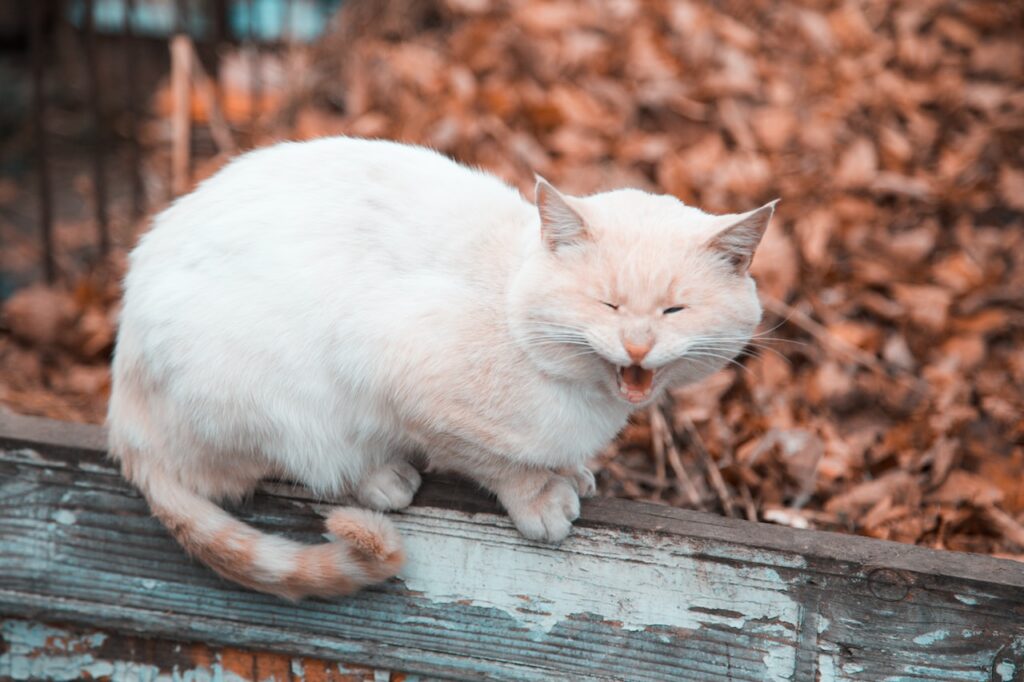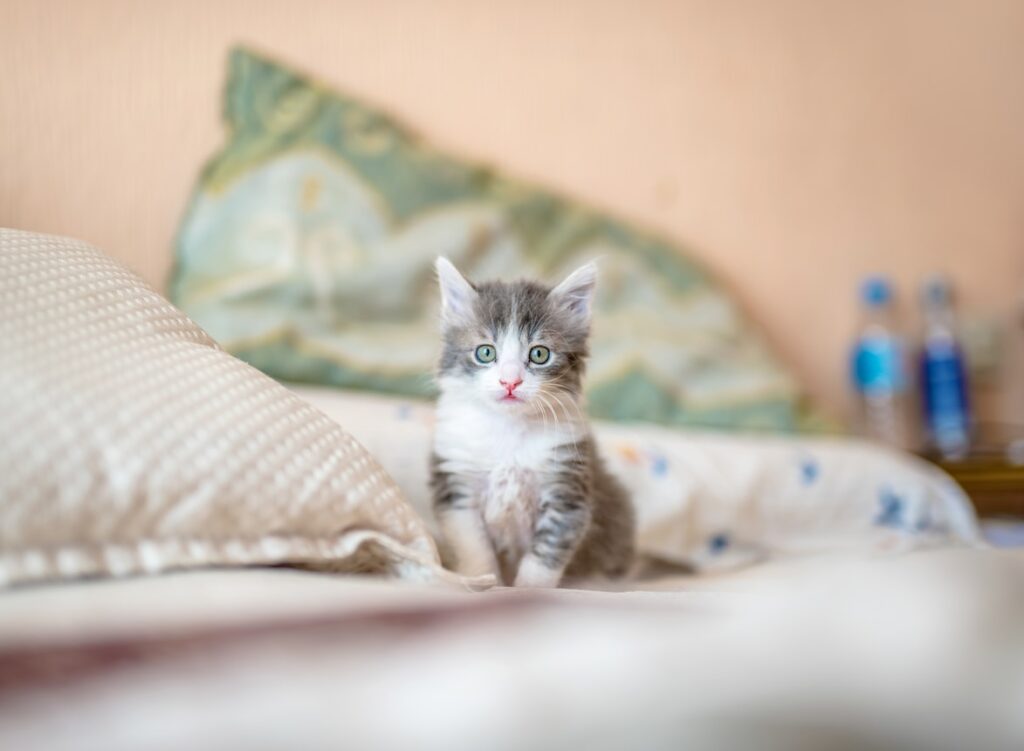Can cats cry when they feel sad or hurt, like humans do? No, they don’t cry tears like we do. But sometimes, their eyes can get watery. Let’s find out why this happens and how you can help your cat.
People cry when they feel different emotions, like sadness or pain. Tears show how we feel. However, cats don’t cry tears when they are sad. They might express their feelings by making sad sounds.
If your cat is sad, she might act differently. She might stay away, not eat as much, and have less energy than usual. But it’s not because of tears. If your cat’s eyes water, it could be a sign of a health issue, even if she’s not sad.
So, even though cats don’t cry like humans, pay attention if your cat’s eyes get watery. It might be because of a medical reason, and you should take it seriously.
You may be interested in How to discipline your cat.

Table of Contents
Can cats cry?
People cry when they feel different emotions like sadness, pain, fear, or happiness. When we have strong feelings, tears come out. Cats also have emotions, so it might seem like they cry too.
Cats can cry, but it’s not because of emotions like ours. Their tears have a practical purpose. The liquid helps clean their eyes and can wash away things that don’t belong there. It’s more like a protective function for their eyes.
Reasons why cats cry
Cats’ eyes can water because of injuries or inflammation. Vets say it could happen because of:
- Conjunctivitis
- Infections
- Allergies
- Your cat’s head shape might also make them tear up more.
If your cat’s eyes are watery a lot, it’s important to see the vet. Even though the reasons might be small, they still need to be treated. Sometimes, a more serious illness like thyroid or kidney disease can make your cat cry. Comforting and petting may not be enough in these cases.

What can I do if my cat is sad?
If your cat seems sad, it’s important to understand the reason. In case of a loss, like a companion passing away or someone moving out, take precautions. Allow your cat to say goodbye to understand the change.
When facing loss, give your cat time to adjust to the new situation. Quick introductions to new friends may not be the best solution, as cats have unique relationships that can’t be easily replaced. Sometimes, getting another cat might be necessary, but seek advice from behavioral counseling.
If you notice subtle signs of sadness in your cat, it’s essential to have a thorough check-up with the vet. Symptoms like reduced activity or refusal to eat could be linked to various physical issues. Discuss with your vet to find appropriate solutions, including appetite stimulants if needed.
If you can’t identify a clear reason for your cat’s sadness, take a moment to think about any changes in your daily life. Reflect on your commitment to your cat and ensure she has enough communication and contact.
Consider if she might be overwhelmed or bothered by other cats. Identify the most plausible reason and try simple changes for at least 14 days. If there’s no improvement, seek advice from those familiar with cats. If your cat becomes more energetic and happy, you’re on the right track.

How do I know if my cat is sad?
Cats, like humans, express their feelings differently. Some cats become very quiet when they’re sad. They might stay in one place for a long time, appearing to stare into space. If you look closely, you’ll notice they’re not sleeping – their body is tense, and their eyes are not closed.
Sad cats lose interest in things that usually make them happy, like playing or watching birds. Some may avoid people or other cats, while others seek more physical contact. A sad cat moves slowly, and its tail might hang down, not showing excitement.
If a cat loses a friend or a loved one, it can experience intense grief. This might last for weeks, with the cat hardly moving and not wanting to eat. They may search for their lost friend, visiting familiar places, wandering around, and meowing. This searching behavior is especially common when a cat can’t say goodbye to its companion who passed away.